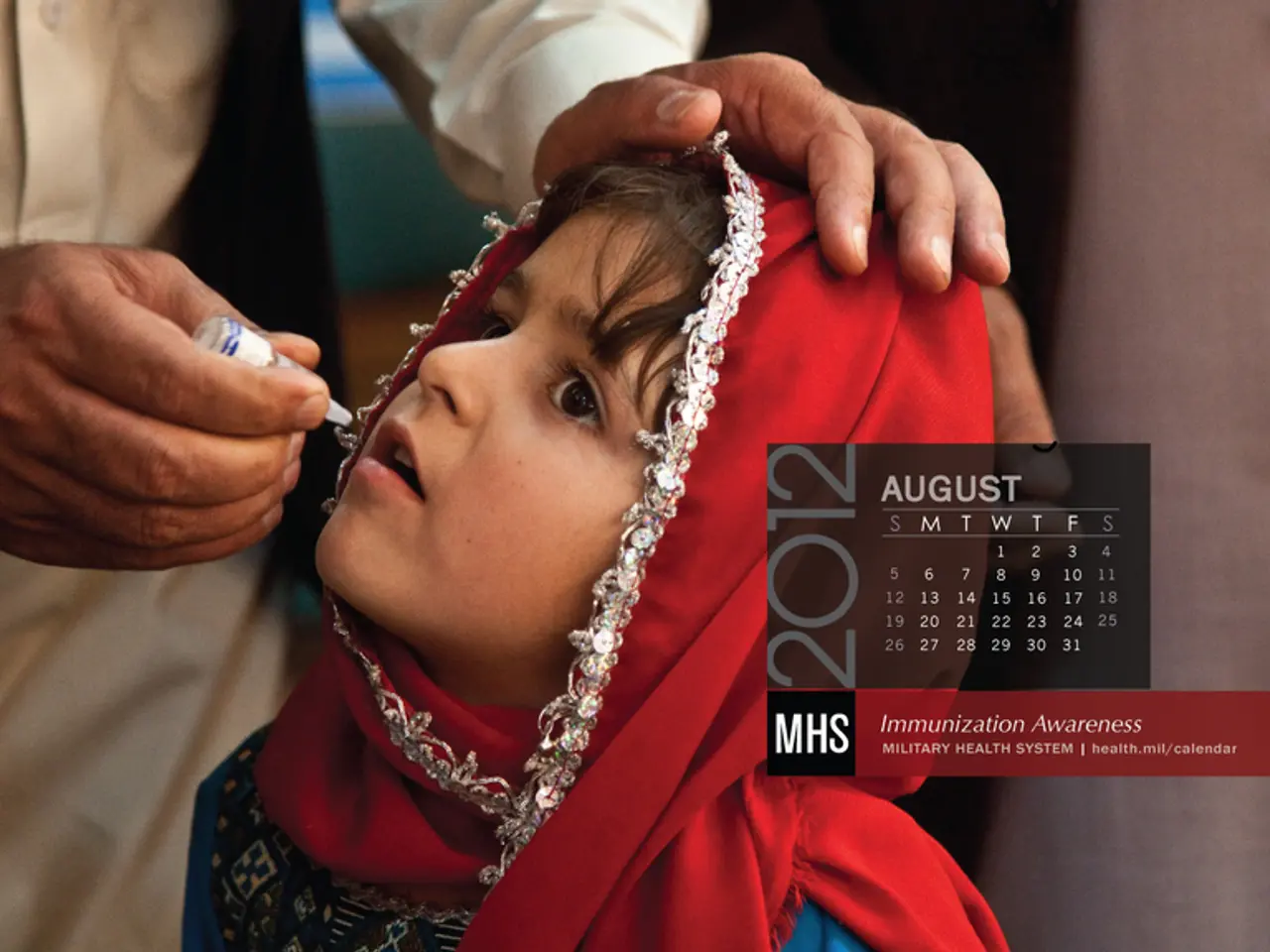Strategies for Halting Measles Epidemics in New York
Measles Outbreaks Resurge in New York: A Call for Action
New York is currently grappling with a resurgence of measles outbreaks, primarily due to declining vaccination rates and close-knit communities with low immunization coverage. This alarming trend, which can be traced back to the 2018-2019 outbreak centered in parts of New York City and surrounding counties, has led to a significant public health crisis.
In 2019, New York was the epicenter of a measles outbreak with over 1,000 people sickened across the state, primarily children. Fortunately, the public health crisis was averted, and nobody died. However, the virus has made a comeback, with three children under the age of five currently battling the disease in Orange County.
The spread of measles is highly contagious and particularly dangerous for children. The recent outbreak in the U.S. is believed to be due to the spread of misinformation, with baseless conspiracy theories about vaccines being "trackers," causing neurological disorders, or being unnecessary contributing to the outbreak.
When vaccination rates drop, entire communities become vulnerable. Herd immunity only works when enough people participate in vaccination. Communities with vaccination coverage gaps are at a higher risk of measles outbreaks, as the virus rapidly snowballs within such communities.
In response to the 2019 outbreak, New York passed a new law tightening the vaccine requirements for school children. However, more needs to be done. Legislative actions to improve vaccination rates and protect communities include mandating vaccinations, imposing fines for noncompliance, restricting school attendance for unvaccinated children, and enhancing public health communication and outreach.
Building on these measures, policymakers can also expand access to vaccines through free clinics and mobile vaccination units, enhance surveillance and rapid response capacity to promptly identify and control outbreaks, and collaborate with community leaders to build trust and culturally sensitive communication.
As the federal government seems to be neglecting its responsibility to address this issue, it falls upon the state Legislature to take the lead on pro-vaccine legislation. It's not just about protecting oneself, but also about protecting those who can't be vaccinated, such as infants and those with compromised immune systems.
As of the latest reports, there have been 935 confirmed cases of measles nationally since May 1. New York must take action to protect its residents in the face of federal negligence. By improving vaccination rates, reducing susceptibility, and better protecting communities against measles resurgence, we can work towards a healthier and safer future for all.
Science has a crucial role to play in understanding the dynamics of measles outbreaks and developing effective vaccination strategies. Health-and-wellness initiatives should collaborate with policy-and-legislation bodies to implement comprehensive public health measures, such as mandating vaccinations and enhancing access to vaccines. Politics and general news should highlight the importance of vaccination for the greater good, emphasizing its impact on not just personal health, but also on community immunity and the protection of vulnerable individuals.




